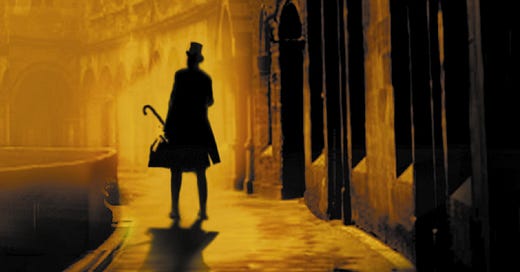(Apols to new subscribers for posting on consecutive days - this is just while I’m adding a bit of content to the site so there’s something for people to see! Paid content coming soon for those of you who have chosen a paid sub. THANK YOU!)
Losing my fiction mojo - and it’s all my fault
Of all people I should know about using it or losing it. After all, I am supposed to be an expert on the human brain and how to use it well and what happens when we don’t. So it should have come as no surprise to me that after years of not writing fiction I lost the ability to write fiction.
Back story (skip this if you know it): I used to write fiction - I thought that’s what being a writer was and it was all I wanted to do. I had a successful career as a teenage novelist (scroll down that page), with a dozen novels under my belt and a clutch of awards to be proud of. I also wrote about writing - the artistic practice and the process of becoming and staying published. I practised writing often, just as a singer practises singing or a pianist practises the piano. And then, in 2005, along came Blame My Brain - the amazing teenage brain revealed, followed by a load of other books on teenage minds and lives and quickly that became a full time career. The fiction had to stop. My last novel was Wasted, published in 2010.
Fiction is a whole different process from writing information books. Not every writer would say exactly the same about this but here’s how writing fiction is for me:
I don’t know the path - it makes itself up and not always helpfully.
I don’t know how long it will be and how long it will take to get to where it’s going.
Everything has to be imagined and created - you are not just writing what’s there, sorting stuff and polishing it.
It’s very scary.
It’s immensely harder to get down to.
Everything - really everything - is easier than writing fiction and so everything is more tempting; even cleaning behind the fridge is more tempting. Actually, cleaning behind the fridge is immensely more tempting. So there is massive opportunity NOT to do the writing. Especially if you have a big fridge and a lot of spiders.
It’s not compulsory. No one is making me do it. So it doesn’t feel like a job.
That last point is, of course, a HUGE MISTAKE
If, like me, you find work very important and if you don’t treat writing fiction like a job there is a high risk that you will never make time for it. You might spend ten years (or in my case 13) not doing it. And then you won’t be able to do it. You’ll lose the connections between the neurons.
So I am now making time for it.
Here’s what I am telling myself:
Writing fiction is really important. It might not be important to someone else but it is very important to me.
Writing fiction is difficult.
Difficult things are worth doing. And worth doing well. But you have to make yourself do them.
I have to make myself do this.
Because it is important to me and I am important to me.
No on else can do it for me or help me. I have to stand on my own feet. (Literally, because I write standing up - a topic for another post!)
So do it.
Just do it.
And if you just do it, just wing it, just try it, soon you will be able to again.
So, because I have been just doing it, slowly I am feeling that fiction part of my brain waking up again. The connections are regrowing.
It feels good. So good. And things that feel good are things we like to do. Which means we are more likely to do them. Thus a virtuous circle begins.
I am using it and not losing it.
Yesterday I was reminded about the other truth about writing fiction: magic happens. I’ll tell you about that soon.
Are you a fiction writer? Do you practise regularly? How do you make yourself do it when you don’t want to - or do you always want to?
Do you want to know what fiction I’m attempting to write? Join me on the journey? You might even be able to help when the going gets tough!




